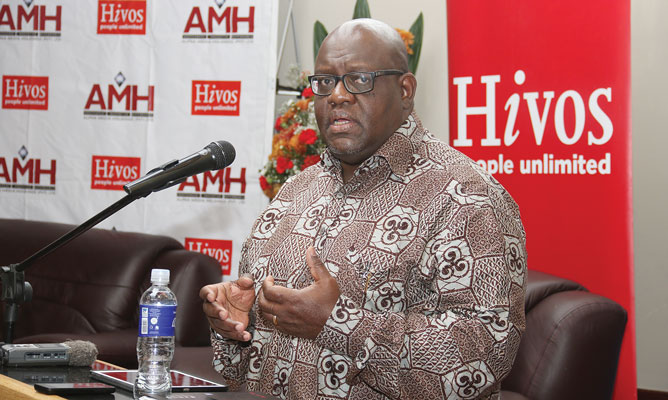Corruption in Zimbabwe has become endemic within its political, private and civil sectors. According to the Transparency International Corruption Perceptions Index 2015, Zimbabwe is ranked at 150 out of 168 countries. Corruption is the abuse of entrusted power for private gain. It can be classified as grand, petty and political, depending on the amounts of money lost and the sector where it occurs.
Zimbabwe is reported to lose billions of dollars through corruption and smuggling in the minerals sector, with serious charges of revenue leakages from state-controlled diamond mines and other public institutions.
Unfortunately, many people who have been accused of corruption have not been prosecuted or are made to pay little to no fines. A culture of impunity has been blamed for fostering corruption.
The problem of corruption in the country was put under the spotlight during an Alpha Media Holdings (AMH) Conversation that featured John Githongo, a renowned Kenyan anti-corruption activist who exposed a US $600 million dollar corruption scandal in his country.
Hivos Southern Africa Hub has been providing support to Alpha Media Holdings, a leading newspaper publisher in Zimbabwe, to conduct dialogues on critical issues facing Zimbabwe. Funding for the conversations is provided by the Embassy of Kingdom of Netherlands (EKN) under the Human Rights Fund (HRF).
The goal of the HRF is to improve the protection and promotion of human rights in Zimbabwe in a sustainable way through support to civil society organizations.
Githongo called for the use of indigenous methods of checks and balances to clamp down on corruption in Zimbabwe and other African countries.
“Corruption accounts for 5 per cent of global GDP, and this is something that has begun to agitate populations across the world,” he said in his keynote address.
He said that political leaders have a key role to play in combating corruption, adding that although many countries in Africa, including Zimbabwe, had established anti-corruption agencies, the record of these institutions had been very poor.
According to Githongo, media has a key role to play in fighting corruption. “The media is essential if you are going to have a serious fight against corruption. Media must be free and widely accessible,” he said.
In addition, Githongo said that civil society must continuously advocate and mobilise against corruption.
Apart from proposing ways to fight against corruption, Githongo also raised questions about how governments should address issues related to old corruption.
Githongo said that the local elite in many African countries tends to start off in government or in business with government.
“You go into government to become rich,” said Githongo, adding that the private sector is complicit in abetting corruption by bribing public officials to safeguard their businesses.
He said corruption had become more sophisticated as globalisation allows major banks, audit and legal firms to become part of the global corruption architecture.
During the open discussion, members of the audience called for the consolidation of existing legislation to combat corruption.
Academic and political analyst, Ibbo Mandaza said there was a need to eliminate corruption in different areas such as the State and private sector.
“The culprits must pay back. There is no reference at all to ensure the money looted is paid back. People are walking freely in the streets and if you can’t arrest them, then they should just pay back,” he said.




